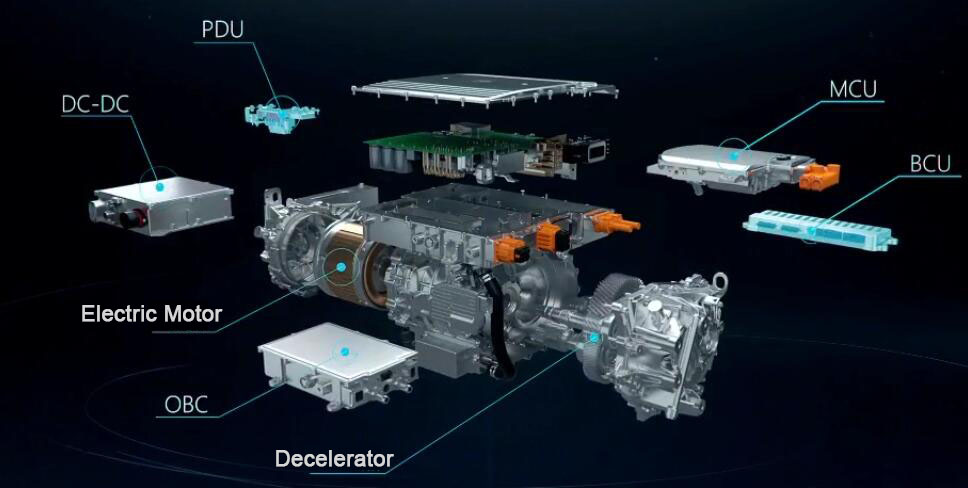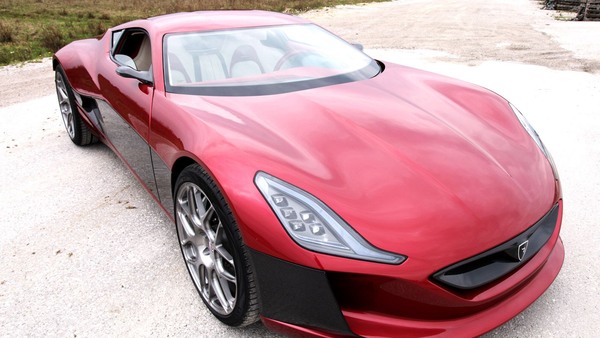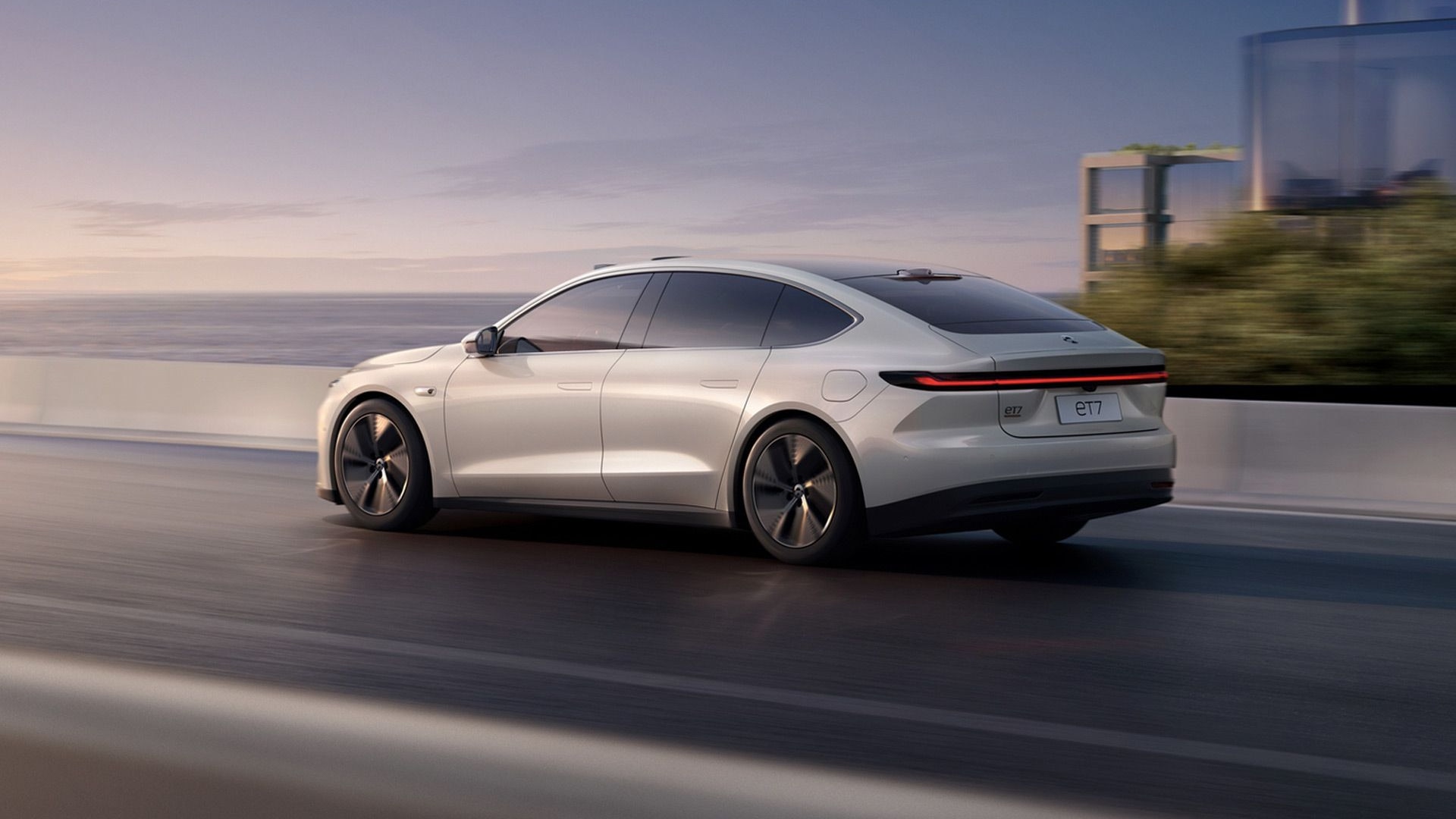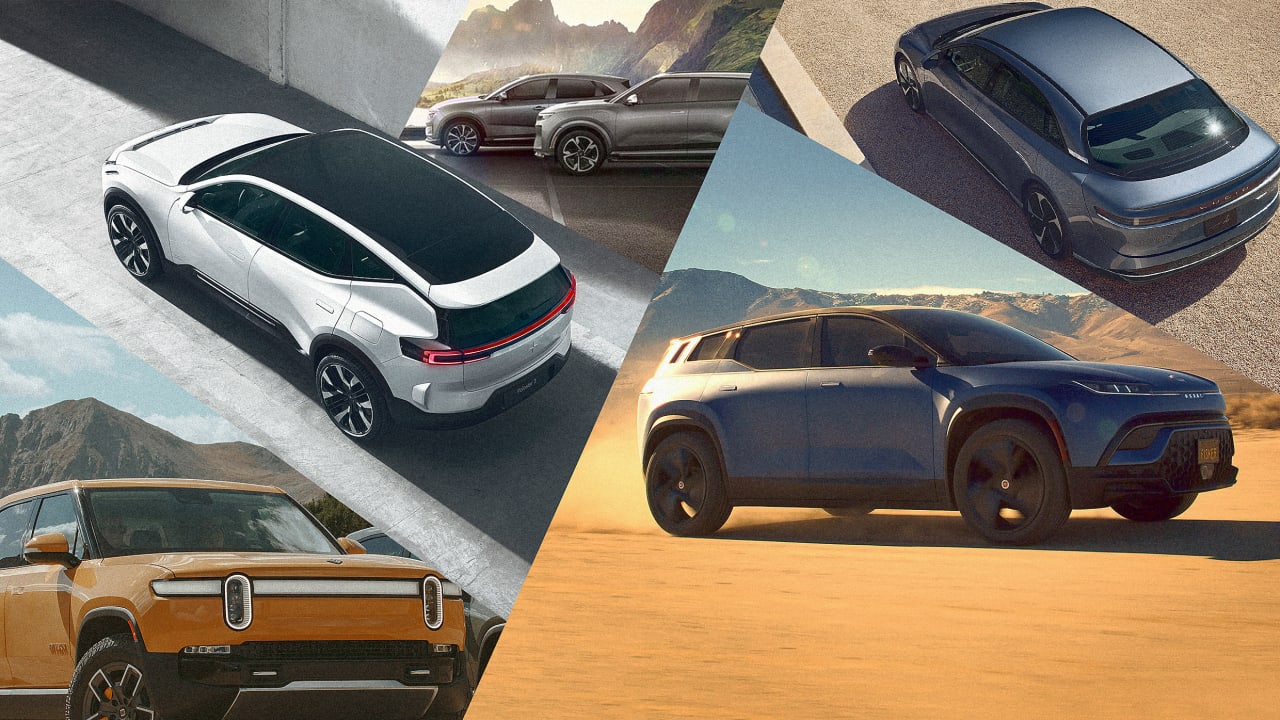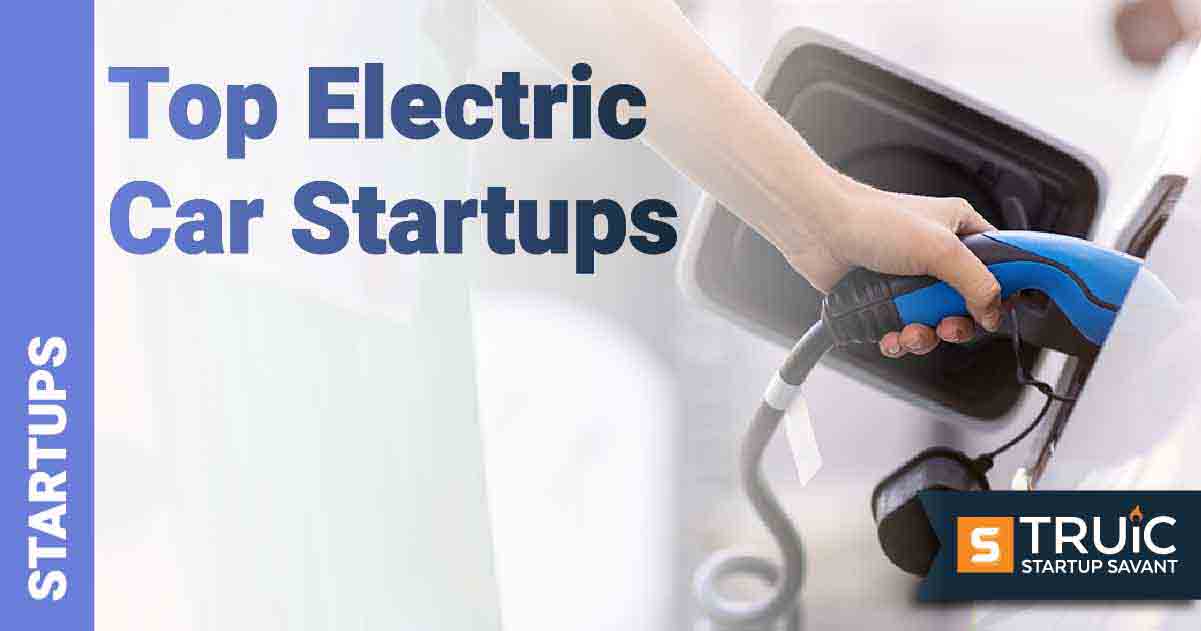What Makes an Electric Vehicle High-Performance?
When it comes to electric vehicle performance, several key factors come into play. Motor power, battery technology, and aerodynamics are just a few of the critical components that contribute to an electric vehicle’s overall performance. A high-performance electric vehicle is one that can accelerate quickly, maintain high speeds, and provide a smooth, responsive driving experience.
One of the most significant factors affecting electric vehicle performance is motor power. High-performance electric vehicles often feature advanced electric motors that produce a significant amount of torque and horsepower. For example, the Tesla Model S Plaid boasts a tri-motor powertrain that produces 1,020 horsepower and can accelerate from 0-60mph in just 2 seconds.
Battery technology is another crucial aspect of electric vehicle performance. Advanced battery management systems, such as those used by Rimac, enable high-performance electric vehicles to optimize energy efficiency and provide a longer driving range. Additionally, the use of high-performance battery cells, such as those developed by NIO, can significantly improve an electric vehicle’s acceleration and overall performance.
Aerodynamics also play a critical role in electric vehicle performance. A sleek, aerodynamic design can help reduce drag and improve an electric vehicle’s overall efficiency. For instance, the Lucid Motors Air features a sleek, aerodynamic design that enables it to achieve a range of over 500 miles on a single charge.
Other factors, such as transmission and gearing, also contribute to an electric vehicle’s performance. However, motor power, battery technology, and aerodynamics are the primary factors that distinguish high-performance electric vehicles from their more conventional counterparts.
As the electric vehicle market continues to evolve, we can expect to see even more innovative approaches to performance. Electric vehicle performance startups, such as those mentioned above, are pushing the boundaries of what is possible with electric vehicle technology. With their focus on advanced technology and innovative design, these startups are redefining the electric vehicle performance landscape.
How to Boost Your Electric Vehicle’s Performance
While electric vehicle performance startups are pushing the boundaries of what is possible with electric vehicle technology, there are several ways to optimize the performance of your existing electric vehicle. By following a few simple tips and tricks, you can improve your electric vehicle’s acceleration, range, and overall driving experience.
One of the most effective ways to boost your electric vehicle’s performance is to maintain proper tire pressure. Underinflated tires can significantly reduce your electric vehicle’s range and efficiency, while properly inflated tires can improve your vehicle’s acceleration and handling. It is recommended to check your tire pressure at least once a month and before long trips.
Upgrading to high-performance tires is another way to improve your electric vehicle’s performance. High-performance tires are designed to provide better grip, handling, and braking performance, which can significantly improve your electric vehicle’s overall driving experience. However, it is essential to choose tires that are compatible with your electric vehicle’s make and model.
Regenerative braking is another feature that can improve your electric vehicle’s performance. Regenerative braking captures some of the kinetic energy and converts it into electrical energy, which is stored in the battery. This feature can improve your electric vehicle’s efficiency and range, especially in city driving or hilly terrain.
Software updates are also crucial for optimizing electric vehicle performance. Many electric vehicle manufacturers, including Tesla and NIO, offer software updates that can improve their vehicles’ performance, efficiency, and range. These updates can also add new features and improve the overall driving experience.
In addition to these tips, there are several other ways to improve your electric vehicle’s performance. For example, removing extra weight from your vehicle, using the correct driving mode, and avoiding extreme temperatures can all improve your electric vehicle’s efficiency and range.
By following these tips and staying up-to-date with the latest software updates, you can optimize your electric vehicle’s performance and enjoy a better driving experience. As electric vehicle performance startups continue to innovate and push the boundaries of what is possible with electric vehicle technology, we can expect to see even more exciting developments in the future.
Rimac: The Croatian Startup Redefining Electric Vehicle Performance
Rimac, a Croatian startup, has gained significant recognition in the electric vehicle performance space for its innovative approach to electric vehicle design and technology. Founded in 2009 by Mate Rimac, the company has been focused on developing high-performance electric vehicles that combine exceptional acceleration, handling, and range.
One of the key factors that sets Rimac apart from other electric vehicle manufacturers is its advanced battery management system. The company’s proprietary technology enables its vehicles to achieve exceptional performance, efficiency, and range. For example, the Rimac C_Two, a high-performance electric supercar, boasts a 120 kWh battery pack that provides a range of over 400 miles and accelerates from 0-60mph in just 1.85 seconds.
Rimac’s innovative approach to electric vehicle design and technology has also led to the development of advanced electric powertrains. The company’s electric powertrains are designed to provide exceptional performance, efficiency, and reliability, making them ideal for high-performance electric vehicles. Additionally, Rimac’s powertrains are highly customizable, allowing the company to tailor its technology to meet the specific needs of its customers.
Rimac’s success has not gone unnoticed, and the company has attracted significant attention from investors and industry experts. In 2018, Rimac received a significant investment from Porsche, which has enabled the company to further develop its technology and expand its operations. Today, Rimac is recognized as one of the leading electric vehicle performance startups in the world, and its technology is being used by several major automotive manufacturers.
Rimac’s commitment to innovation and performance has also led to the development of several high-performance electric vehicles, including the Rimac C_Two and the Rimac Concept_One. These vehicles have been designed to showcase the company’s technology and capabilities, and they have received widespread acclaim from industry experts and enthusiasts.
As the electric vehicle market continues to evolve, Rimac is well-positioned to play a leading role in shaping the future of electric vehicle performance. With its innovative approach to electric vehicle design and technology, the company is pushing the boundaries of what is possible with electric vehicles and inspiring a new generation of electric vehicle enthusiasts.
NIO: The Chinese Startup Taking Electric Vehicle Performance to the Next Level
NIO, a Chinese startup, has made a name for itself in the electric vehicle performance space with its focus on advanced technology and innovative design. Founded in 2014 by William Li, the company has been committed to developing high-performance electric vehicles that combine exceptional acceleration, handling, and range.
One of the key factors that sets NIO apart from other electric vehicle manufacturers is its high-performance electric powertrains. The company’s powertrains are designed to provide exceptional acceleration and efficiency, making them ideal for high-performance electric vehicles. For example, the NIO EP9, a high-performance electric supercar, boasts a 1,341 horsepower powertrain that accelerates from 0-60mph in just 2.7 seconds.
NIO’s focus on advanced technology also extends to its autonomous driving capabilities. The company has developed a range of autonomous driving technologies, including its NIO Pilot system, which enables vehicles to drive autonomously in a range of scenarios. This technology has the potential to revolutionize the electric vehicle industry, enabling vehicles to drive safely and efficiently without human intervention.
NIO’s commitment to innovation and performance has also led to the development of several high-performance electric vehicles, including the NIO ES6 and the NIO ES8. These vehicles have been designed to showcase the company’s technology and capabilities, and they have received widespread acclaim from industry experts and enthusiasts.
NIO’s success has not gone unnoticed, and the company has attracted significant attention from investors and industry experts. In 2018, NIO listed on the New York Stock Exchange, raising over $1 billion in funding. This funding has enabled the company to further develop its technology and expand its operations, solidifying its position as a leading electric vehicle performance startup.
As the electric vehicle market continues to evolve, NIO is well-positioned to play a leading role in shaping the future of electric vehicle performance. With its focus on advanced technology and innovative design, the company is pushing the boundaries of what is possible with electric vehicles and inspiring a new generation of electric vehicle enthusiasts.
Electric Vehicle Performance Startups to Watch in the US
The US is home to a thriving electric vehicle performance startup scene, with several companies making waves in the industry. In this section, we’ll take a closer look at three US-based electric vehicle performance startups that are worth watching: Lucid Motors, Fisker Inc., and Faraday Future.
Lucid Motors is a California-based startup that has been making headlines with its high-performance electric vehicles. The company’s flagship model, the Lucid Air, boasts a 1,080 horsepower powertrain and a range of over 500 miles. Lucid Motors has also developed a range of innovative technologies, including its proprietary battery management system and advanced aerodynamics.
Fisker Inc. is another US-based startup that is making a name for itself in the electric vehicle performance space. The company’s founder, Henrik Fisker, is a well-known designer and entrepreneur who has previously worked with companies like Tesla and Aston Martin. Fisker Inc.’s flagship model, the Fisker EMotion, boasts a 780 horsepower powertrain and a range of over 400 miles.
Faraday Future is a California-based startup that has been gaining attention for its innovative approach to electric vehicle design and technology. The company’s flagship model, the FF 91, boasts a 1,050 horsepower powertrain and a range of over 300 miles. Faraday Future has also developed a range of advanced technologies, including its proprietary battery management system and advanced autonomous driving capabilities.
These US-based electric vehicle performance startups are pushing the boundaries of what is possible with electric vehicles, and they are helping to drive innovation and growth in the industry. With their focus on advanced technology and innovative design, they are well-positioned to play a leading role in shaping the future of electric vehicle performance.
As the electric vehicle market continues to evolve, we can expect to see even more exciting developments from these startups and others like them. With their commitment to innovation and performance, they are helping to drive the electric vehicle industry forward and inspire a new generation of electric vehicle enthusiasts.
The Role of Artificial Intelligence in Electric Vehicle Performance
Artificial intelligence (AI) is playing an increasingly important role in optimizing electric vehicle performance. Electric vehicle performance startups are leveraging AI to improve various aspects of their vehicles, including predictive maintenance, energy efficiency, and autonomous driving.
Predictive maintenance is one area where AI is making a significant impact. By analyzing data from sensors and other sources, AI algorithms can predict when maintenance is required, reducing downtime and improving overall efficiency. For example, the AI-powered predictive maintenance system developed by Rimac can detect potential issues before they occur, allowing for proactive maintenance and minimizing the risk of breakdowns.
Energy efficiency is another area where AI is being used to improve electric vehicle performance. AI algorithms can optimize energy consumption by analyzing data on driving habits, road conditions, and other factors. For example, the AI-powered energy management system developed by NIO can optimize energy consumption in real-time, improving the overall efficiency of the vehicle.
Autonomous driving is also an area where AI is being used to improve electric vehicle performance. AI algorithms can analyze data from sensors and other sources to enable autonomous driving capabilities, improving safety and reducing the risk of accidents. For example, the AI-powered autonomous driving system developed by Faraday Future can enable Level 3 autonomous driving capabilities, allowing drivers to take their hands off the wheel in certain situations.
Electric vehicle performance startups are also using AI to improve the overall driving experience. For example, the AI-powered driver assistance system developed by Lucid Motors can provide personalized recommendations for improving driving efficiency and reducing energy consumption.
As the use of AI in electric vehicle performance continues to grow, we can expect to see even more innovative applications in the future. Electric vehicle performance startups will play a crucial role in shaping the future of electric vehicle performance, and AI will be a key enabler of this innovation.
Challenges and Opportunities in Electric Vehicle Performance
Electric vehicle performance startups face a range of challenges as they work to develop and bring to market high-performance electric vehicles. One of the biggest challenges is range anxiety, which refers to the fear that an electric vehicle will run out of charge before reaching its destination. This can be a major concern for drivers who need to travel long distances or who do not have access to charging infrastructure.
Charging infrastructure is another major challenge facing electric vehicle performance startups. While charging infrastructure is improving, it can still be difficult to find charging stations, particularly in rural areas. This can make it difficult for drivers to charge their vehicles on the go, which can limit the appeal of electric vehicles.
Regulatory hurdles are also a challenge for electric vehicle performance startups. Governments around the world are implementing regulations to encourage the adoption of electric vehicles, but these regulations can also create challenges for startups. For example, regulations may require startups to meet certain safety or emissions standards, which can be difficult to achieve.
Despite these challenges, there are also many opportunities for innovation and growth in the electric vehicle performance space. One of the biggest opportunities is the development of new battery technologies, which could enable electric vehicles to travel longer distances and charge more quickly. Another opportunity is the development of autonomous driving technologies, which could enable electric vehicles to drive themselves and improve safety.
Electric vehicle performance startups are also exploring new business models, such as subscription-based services and car-sharing programs. These models could make electric vehicles more accessible and affordable for a wider range of consumers, which could help to drive growth in the market.
Overall, while there are challenges facing electric vehicle performance startups, there are also many opportunities for innovation and growth. As the market continues to evolve, we can expect to see new technologies, business models, and innovations emerge that will help to shape the future of electric vehicle performance.
The Future of Electric Vehicle Performance: Trends and Predictions
The future of electric vehicle performance is exciting and rapidly evolving. As technology continues to advance, we can expect to see significant improvements in electric vehicle performance, including increased range, faster charging times, and improved efficiency.
One trend that is expected to shape the future of electric vehicle performance is the development of advanced battery technologies. Solid-state batteries, for example, have the potential to significantly improve electric vehicle range and efficiency. Several startups, including Factorial Energy and QuantumScape, are already working on commercializing solid-state battery technology.
Another trend that is expected to impact electric vehicle performance is the increasing use of artificial intelligence (AI) and machine learning (ML) in electric vehicle design and development. AI and ML can be used to optimize electric vehicle performance, improve efficiency, and enhance the overall driving experience.
Autonomous driving is also expected to play a significant role in the future of electric vehicle performance. As autonomous driving technology continues to advance, we can expect to see more electric vehicles with autonomous capabilities, which will improve safety, reduce traffic congestion, and enhance the overall driving experience.
In addition to these trends, there are several predictions that can be made about the future of electric vehicle performance. One prediction is that electric vehicles will become increasingly mainstream, with many more models available in the market. Another prediction is that electric vehicles will become more affordable, making them more accessible to a wider range of consumers.
Electric vehicle performance startups will play a crucial role in shaping the future of electric vehicle performance. These startups are already pushing the boundaries of what is possible with electric vehicles, and they will continue to drive innovation and growth in the industry.
As the electric vehicle market continues to evolve, we can expect to see many exciting developments in the future. With advancements in technology, increasing adoption, and growing investment, the future of electric vehicle performance is bright and full of possibilities.

